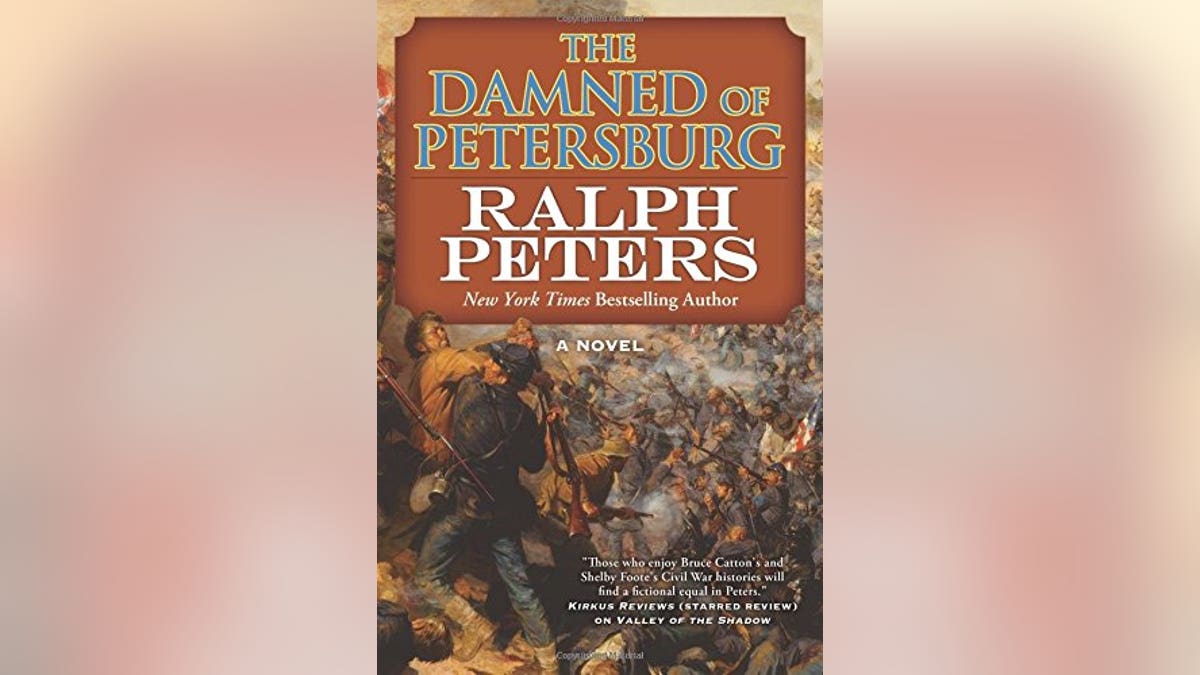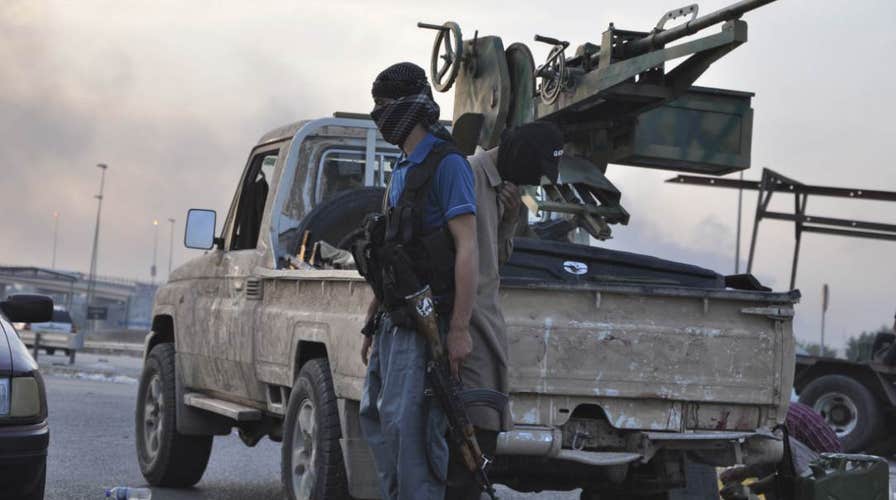Ralph Peters: You do what it takes to exterminate terror
Lt. Col. Ralph Peters discusses how to fight terrorism.
What does Turkey’s destructive president, Recep Tayyip Erdogan, have in common with the Saudis, Pakistanis, Iraq’s Sunnis and the conservatives of Germany’s Weimar Republic? They all thought that they could exploit and control fanatics. One might as well try to befriend poisonous snakes.
To his credit, Erdogan initially facilitated the growth of Turkey’s economy. To his discredit, he has all but destroyed Turkey’s democracy, reignited the Kurdish conflict for his own political advantage, suppressed the media, imprisoned opponents on ludicrous charges or concocted evidence, and dismantled the modernizing constitution that was the primary legacy of one of the great men of the 20th Century, Mustafa Kemal Ataturk.
And he thrust Islamization upon a country that had been a model of tolerance in the Muslim world.
Erdogan’s version of Islam follows the pattern of the Muslim Brotherhood: subversive, but rarely engaging in deadly violence. It has, in the past, exploited the ballot, rather than relying on the bullet. In Turkey, that meant radicalizing the inherently conservative rural population and the country folk transplanted to the sprawling improvised settlements around Turkey’s major cities.
For Erdogan, this terror wave’s a political blow. For Turkey, it’s a profound tragedy. The slaughter at Ataturk Airport in Istanbul may only have been the start.
But Erdogan (like Mohammed Morsi in Egypt) grew impatient. He began pushing hard for ever more Islamization and a potent mix of faith and xenophobia. Turkey became, if not a police state, a state where behavior increasingly is policed.
And he indulged in a personal vendetta that led to Tuesday's attack on Istanbul’s airport. Erdogan detests Bashir al Assad, Syria’s dictator and a minority Alawite—whose father had crushed the Muslim Brotherhood. Misjudging the staying power of the Assad regime, Erdogan backed various radical Islamist groups that flocked to Syria to wage jihad. He imagined, as so many have before him, that he could master and manipulate fanatics—and then dispense with them, once their utility had expired.

And he armed them. He protected them. He let foreign fighters pass through Turkey to join the jihad. He lied to Western allies and sought to revive his battered vision of a new Ottoman Empire.
Instead, the region became embroiled in war. The terrorists and insurgents did not act in Turkey’s interests. They didn’t take orders. And when Erdogan moved against them—meagerly—to protect Turkey’s interests, they turned on him.
Terror attacks expanded on Turkish soil. Some can be credited to extreme Kurdish nationalists, but most (and the worst) are staged by ISIS and its affiliates. The assassination of Syrian activists within Turkey morphed into direct attacks on Turks.
Turkey became the target of jihad. That’s ironic, to put it mildly, since Istanbul, long known as Constantinople, fell to the Muslim Ottomans in the course of jihadi warfare in 1453.
Erdogan’s Islam, although stern, was not extreme enough to appease the jihadi Aztecs of our age, men intoxicated by massive blood sacrifices to their corrupted vision of a god.
For Erdogan, this terror wave’s a political blow. For Turkey, it’s a profound tragedy. The slaughter at Ataturk Airport in Istanbul may only have been the start.
Turkey matters to a degree that few Westerners appreciate. It’s always been the land-bridge and invasion route for armies and ideas, the place where cultures collided and empires rose and fell. Walking the alleys of Istanbul, you literally trip over history. And its strategic position is as important now as it was 2,500 years ago, when Persian armies marched across it to Greece.
Anatolia, Turkey’s heartland, also was a refuge for Muslims renewing their faith in humane forms, notably the Sufi mystics, poets and theologians (some of whose visions of the divine resemble those of Protestant mystics from northern Europe). The Ottoman Empire saw its share of intolerance, jihad and massacre over the centuries, but it also was a land of civilization compared to the barbarism that ultimately encompassed the Arab world. Turkey was never a land fully robbed of hope. Arabs wallowed, Turks strived.
Now a new threat faces the Turkish people, unleashed naively by a president whose ambition has an increasingly high price. And although the deaths from terror attacks dominate the headlines, the greater blow will be to Turkey’s economy—the one sphere in which Erdogan could claim impressive progress.
ISIS and other Salafist terror groups have recognized that the softest of soft targets and the one that has the most immediate effect on economies is the tourist industry. Even Paris proved vulnerable. But as we’ve seen in Egypt, Tunisia, Jordan and now Turkey, terror strikes that are dirt cheap for the fanatics (three foot soldiers, basic weapons, suicide vests and cab fare in Istanbul) devastate tourism and the local economies.
And efforts to protect tourists rob tourism of its pleasure. No one wants to lie on the beach under armed guard or stand in endless (vulnerable) security lines. It’s easier to go elsewhere.
Turkey’s tourism industry already had taken a body blow because of Erdogan’s macho feud with Russia’s Vladimir Putin. Now it’s threatened with outright collapse.
Oh, and for the fanatics, attacking tourism also “cleanses” the realms of Islam of infidels. It’s a twofer.
This matters to me personally. I have great affection for Turkey and admire the strength and stoicism of the Turkish character, as well as the Turks’ often-remarkable kindness to visitors. I’ve known the country since 1979. Later, my wife and I honeymooned there (going by bus all the way to the Iranian border). I find Istanbul the most fascinating city in the world. Despite my political disagreements on some sensitive issues, I wish the Turkish people well.
I also wish them a better leader. But Erdogan will only dig in. Dictators always do. In the meantime, he has rendered his country vulnerable to savages who delight in killing the innocents. Predictably, the snakes turned.

